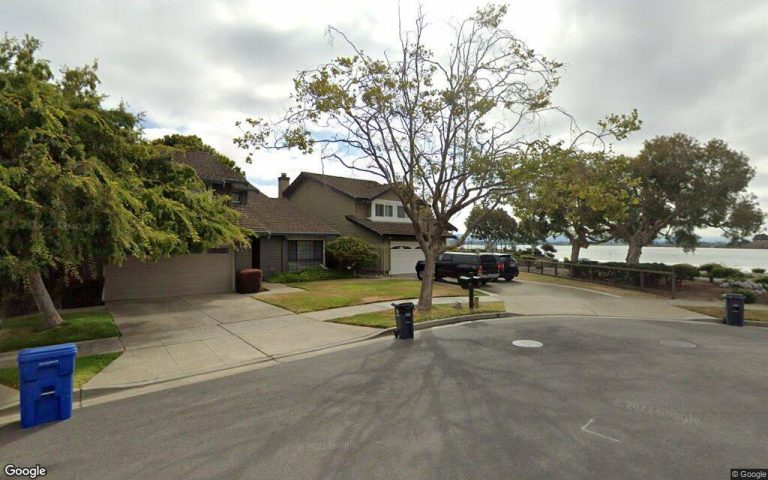BERKELEY — Two competing measures proposing changes to renter protections in Berkeley will appear on the November ballot, with one backed by the City Council and the other by Berkeley landlords.
Measure BB, the city’s proposal, and Measure CC, a citizen’s initiative, both call for dedicating funding toward rent relief, requiring landlords to negotiate with unionized tenants and largely leave rent control exemptions in place for Golden Duplex owners, or properties that were owner-occupied at the end of 1979 and currently have an owner living in one of the units.
But the measures differ widely on other issues.
Measure CC would expand rent control and eviction protections to all owner-occupied properties and remove local eviction protections for tenants in single-family home rentals, allowing home owners to move back into their homes without paying up to $26,000 in relocation assistance. It would also allow for annual rent increases of up to 7.1% and for rent to be increased if improvements were made to the inside of a unit by owner and renters permission. Measure CC also permits tenants to unionize if at least two-thirds of residents agree and only allow for a three-day eviction notice to be issued once a tenant is in arrears at least one month of rent.
It would reel back the Berkeley Rent Board’s authority to intervene on various issues, such as intervening as an interested party on litigation between a landlord and tenant and making determinations on the habitability of a unit, leaving that responsibility solely with code enforcement. Board commissioners would also no longer be paid for their service and the city auditor would audit the board every three years.
“We are one step closer to providing renters and rental housing providers with a permanent rent relief fund that will help serve those in need” said Krista Gulbransen, executive director of the Berkeley Rental Housing Coalition, in BRHC’s August newsletter to its members. “Voters who signed the petition also recognized the importance of lessening the impact of government regulation on small rental housing providers who live on site with their tenant.”
Mayor Jesse Arreguin said Measure BB aims to strike a compromise between landlords and tenants. The initiative would leave the rent board’s power largely unchanged, aside from removing the board’s ability to recommend rent control protections be removed for a unit.
Measure BB would also cap annual rent increases at 5%, allow tenants to organize with agreement from at least 50% of occupants if the building has 10 or more units or if the building is managed by a property management company regardless of the number of units. It also would prohibit three-day eviction notices until a tenant is in arrears one month of fair market rent, limit breach-of-lease evictions to those that cause “actual and substantial injury” to the owner and prohibits evictions for failing to renew a lease.
“I think it’s important that we make that commitment while we’re strengthening the rental ordinance, while we’re making important clean up changes, while we’re strengthening eviction protections, while we’re strengthening tenant protections, also recognizing that housing preservation is a critical part of our city’s affordable housing strategy and our effort to prevent homelessness,” Arreguin said during an Aug. 5 special meeting.
The rent board initially attempted to place a measure on the November ballot that would have capped rent increases to 3% and remove exemptions for many Golden Duplexes, along with many of the other changes proposed under Measure BB. That effort fell short in gathering the necessary number of signatures to qualify for the Nov. 5 ballot though.
Councilmember Cecilia Lunaparra attempted to revive the rent board’s initiative by proposing a similar the council place a similar measure on the November ballot. She ultimately backed the amended measure proposed by Arreguin and Councilmember Sophie Hahn while noting her “steadfast” “dedication and commitment to strengthening tenant protections.”
“I bought this item forward originally because I recognize the urgency to protect and strengthen tenants rights, to ensure our regulations are aligned with new local and state laws, and provide voters, the majority of which are renters, the opportunity to advocate for their needs, particularly while a misleading landlord-sponsored measure is on the ballot,” Lunaparra said during the meeting.
Members of the rent board have endorsed the city-sponsored measure, with Commissioner Xavier Johnson asserting it represents “forward thinking,” “equity” and “common sense.” Many who identified themselves as renters during the August meeting also shared support for the council’s proposed ballot measure.
Alternatively, many landlords who spoke during the meeting implored the council to opt against placing either measure on the ballot, arguing the council’s proposals weren’t crafted with community input and would hurt small property owners.
“My ask is that the council treats landlords fairly rather than hostile,” said Allison Dixon, a landlord who called the city’s treatment illegal, unjust and unfair.
As with other competing Berkeley measures on this November’s ballot, if both measures are approved with a simple majority of votes, the measure with the greatest number of votes becomes law.












